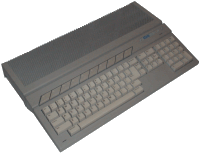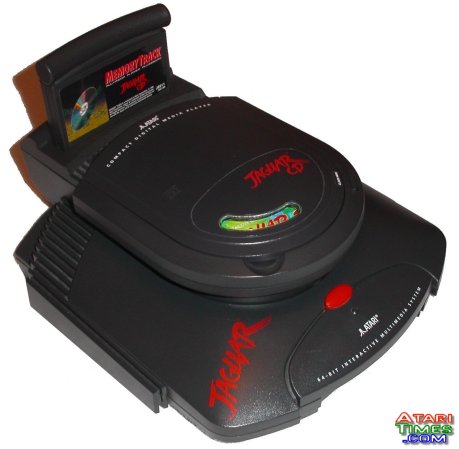 |
 |
What is a "Dead" System? |
Generally speaking, a dead system must meet one or both of the following conditions: 1) It is no longer supported by the manufacturer with new games. 2) Owners of the system can no longer buy new (or even old) games at retail outlets.
 When was the last time you bought a new Atari game at a store like Electronics Boutique?
(I'm aware that EB did sell Lynxes and
Jag's in 2001 in the UK, but if you think that is going to bring those systems back from the grave, I've got some swamp land in Florida I'd like to sell you.)
When was the last time you bought a new Atari game at a store like Electronics Boutique?
(I'm aware that EB did sell Lynxes and
Jag's in 2001 in the UK, but if you think that is going to bring those systems back from the grave, I've got some swamp land in Florida I'd like to sell you.)
There is little question that all of the Atari video game systems are now considered to be dead. Telegames and Songbird Productions have been the biggest supporters of the late great Atari systems, but these systems have met both conditions for far too long to be considered "revived." Once a system is dead, it will never return. All the hoping and wishing will never change that. Even the super successful systems such as the NES and Genesis have been buried simply due to the march of time.
What does it take for a system to outlive its competitors? Some might think that innovation is the true defense against a quick death, but they would be wrong. Take the Dreamcast for example. Here was a system with innovation running out of its proverbial ears, and it still failed. In record time, mind you. The same applies to the Lynx. Here was a system that faced less advanced competition in the
Gameboy. It should have been a success but wasn't.
Many would blame their corporate parents, Sega and Atari, for extreme ineptness. How do you screw up when you have a superior product? They certainly must carry some of the blame; however, name an occurrence where the most innovative product became the dominant one? Tell me which one of these products became the dominant platform, and which one was more innovative:
History has proven that the "least common denominator" will very often become the dominant platform. (Now try to figure out which one is the LCD between Xbox, GameCube, and PS2!)
Ok, so you've got a "dead" system. Maybe it's a Jaguar, Lynx, or Dreamcast. So what? Does the fact that no new games are being released prevent you from firing up the system and enjoying it? True, you can't walk down to your local retail outlet and buy the game of your choice. But I know of something even better than retail: Online Convenience Shopping! Yes, buying games for a dead system is even easier than buying one for a viable one. You don't even have to get out of your chair! Now, granted it may take a bit longer for you to get your game, but it is still possible, no?
 Another thing to consider about a dead system is: Have you played each and every game to its conclusion? If not, then consider this to be an opportunity instead of an obstacle. You now have a chance to find and play all of the games that were released for the system! There are a pre-set number of games to be played with makes completing your goal of playing them all actually attainable.
Another thing to consider about a dead system is: Have you played each and every game to its conclusion? If not, then consider this to be an opportunity instead of an obstacle. You now have a chance to find and play all of the games that were released for the system! There are a pre-set number of games to be played with makes completing your goal of playing them all actually attainable.
So do video game systems ever truly die? Certainly not. The only thing that dies about any of them is that of support. It may get harder and harder to get new games (maybe even impossible) but that little fact should not prevent you from playing the games that are available.
So take heart! The next time someone laughs at you for playing a "dead" system, just tell them that the only dead system is one that no one plays anymore. Then remind them that even their favorite system will one day meet it's own demise.
| Name: | |
| Subject: | |
| Comment: | |
| Check: | What is the greatest video game company of all time? (Hint: Atari.) |